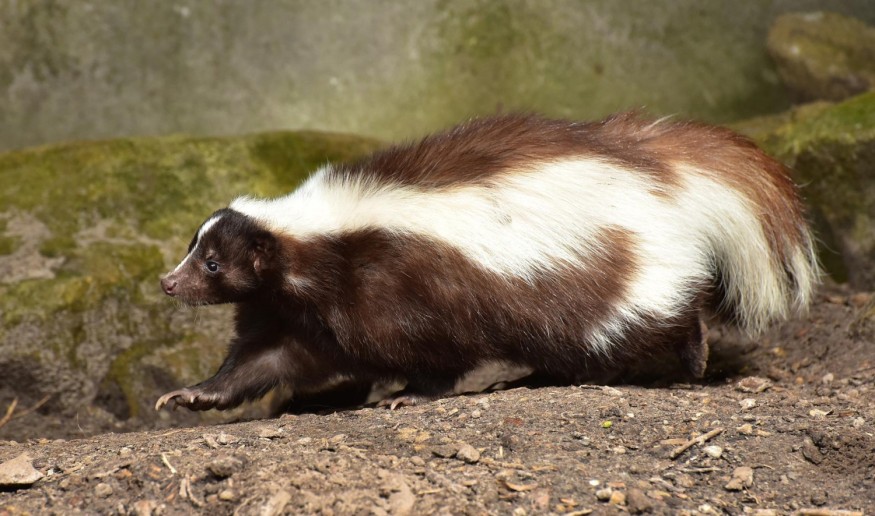Teenager pulls over to save a little animal whose head is caught in a cup. She didn't believe her son, Becky Ball when he stated he wanted to stop the automobile.

Ball remarked, "I assumed he was kidding," to The Dodo.
But the tenacious adolescent was not going to accept no as an option. The child noticed a skunk with his head caught in a cup while looking out the passenger window and felt he had to intervene.
Jumping Into Action
They saw the skunk struggling on the road, wandering, blind, on their way to the boy's cross-country practice.
A video Ball shot shows the skunk struggling:
Ball was worried about her son approaching a notoriously stinky animal and what may happen.
Ball stated, "I was afraid he might be sprayed. Until he opened the door to go, "[I] did not think he was serious."
The child carefully removed the cup from the skunk, releasing the trapped animal. Fortunately, he could do so without startling the skunk and causing it to spray.
Perhaps realizing that the youngster was helping him, the skunk merely kept moving down the path.
The teen's conviction demonstrates that it may sometimes be worthwhile to speak up when it comes to saving animals, even though the results could be unpleasant.
Living in a Plastic World
We live in a plastic world. It may be found in the single-use packaging we throw away, the consumer products that line our shelves, and even in the microplastic fibers that are shed from our clothing when we wash it.
More plastic was produced in the first ten years of this century than had ever been before the year 2000. Additionally, billions of pounds more plastic enter the waters each year. According to studies, there are currently between 15 and 51 trillion pieces of plastic in the oceans across the globe, from the equator to the poles and from the Arctic ice sheets to the ocean floor. Every square mile of the ocean's surface contains plastic garbage.
Animals Trapped in Plastic
Animals trapped in plastic may suffer terrible consequences, including impaired movement, malnutrition, drowning, or suffocating. It may result in growths, infections, or amputation of limbs. Animals trapped in plastic have a harder time locating food and are also easier prey for predators.
The threat to whales from plastic entanglement is higher than that from whaling. Whales may lose their fins or tails due to the harsh threads of nets cutting into their skin. Other whales must swim with the fishing nets that are entangling them. Sea lions, dolphins, and seals are among the marine species that frequently suffer the consequences of their curiosity. Turtles are also known to become entangled in plastic readily. They play with plastic items by swimming straight up to them. These creatures have not yet realized how harmful these things are rather than how entertaining they are.
Related Article : Microplastics Found in Farm Animals' Blood, Meat, and Milk, Should Consumers Start Worrying?
For the most recent updates from the animal kingdom, don't forget to follow Nature World News!
© 2025 NatureWorldNews.com All rights reserved. Do not reproduce without permission.





